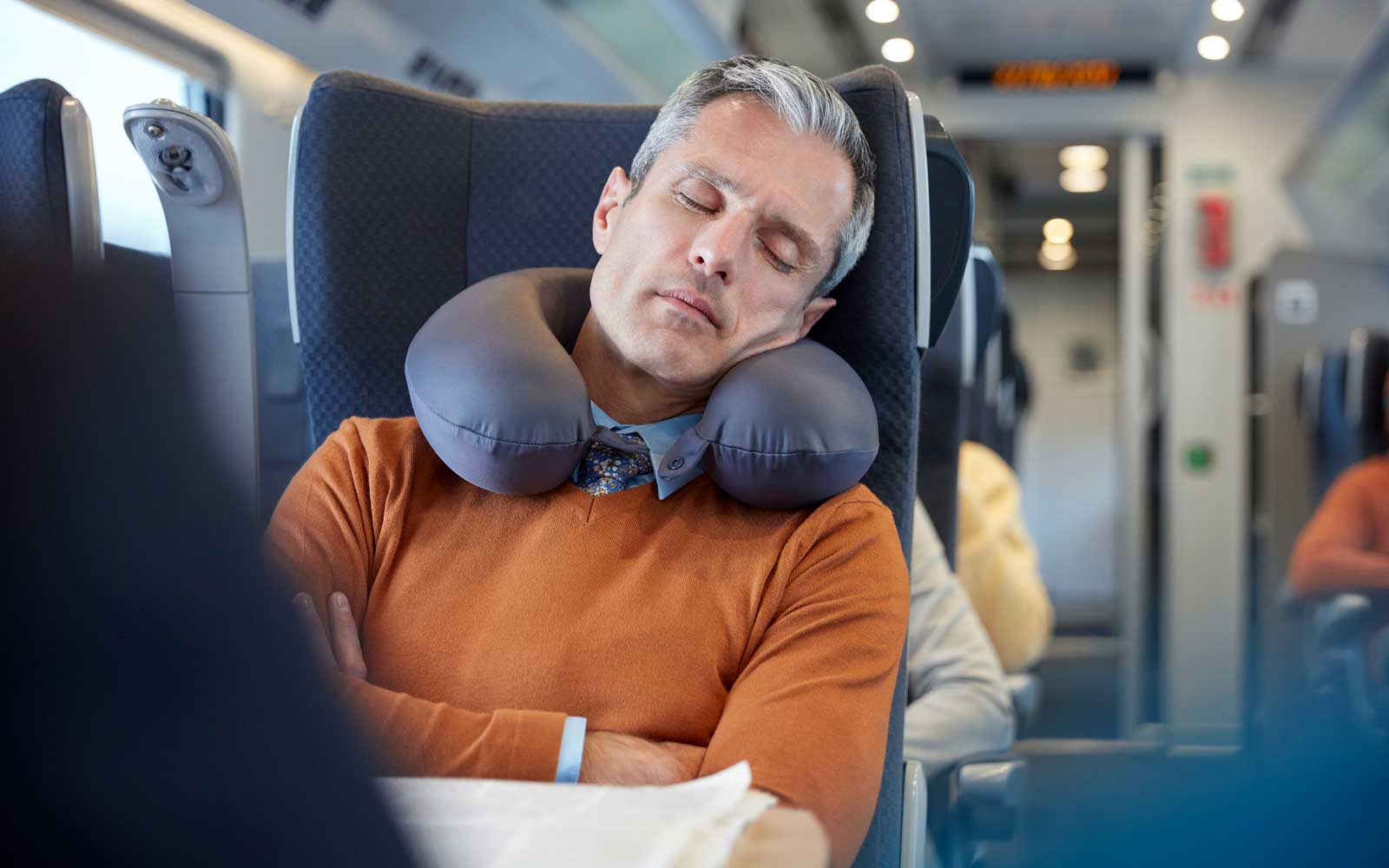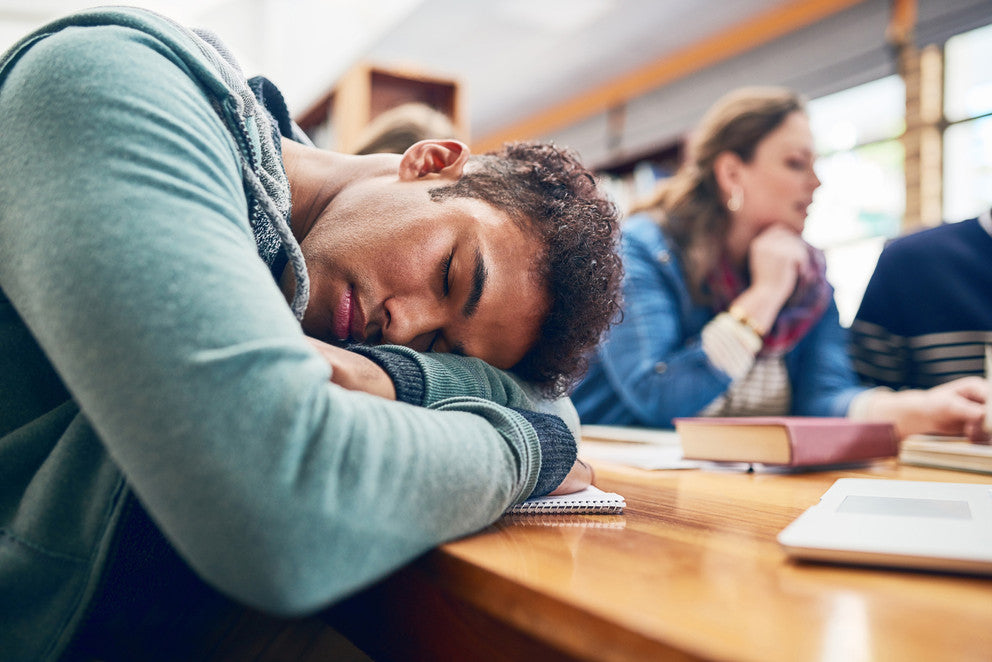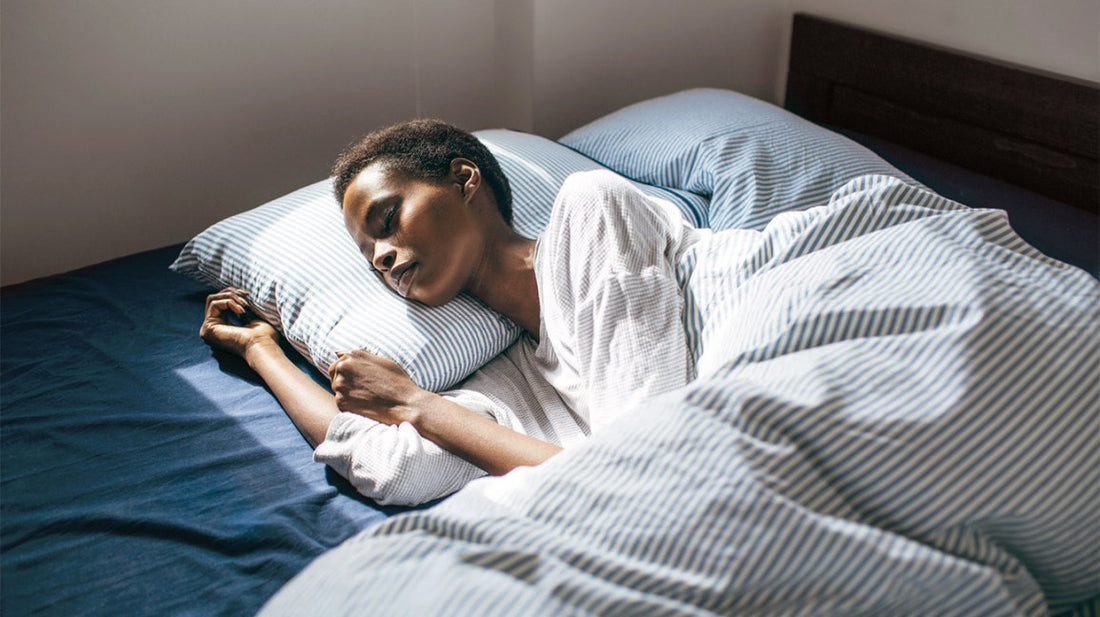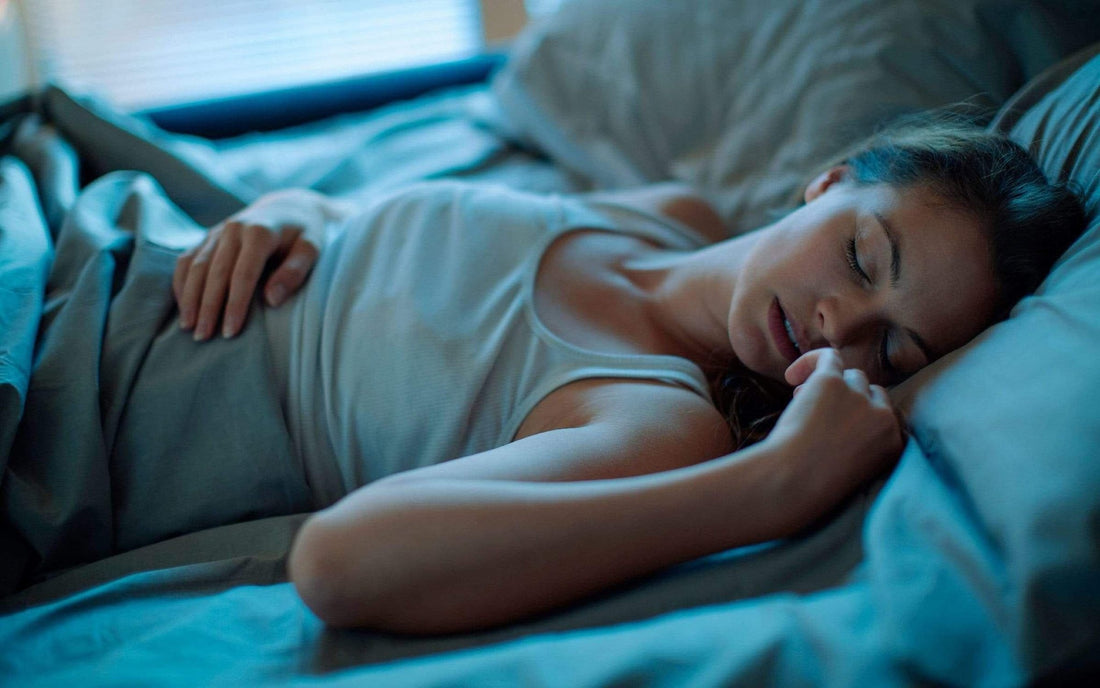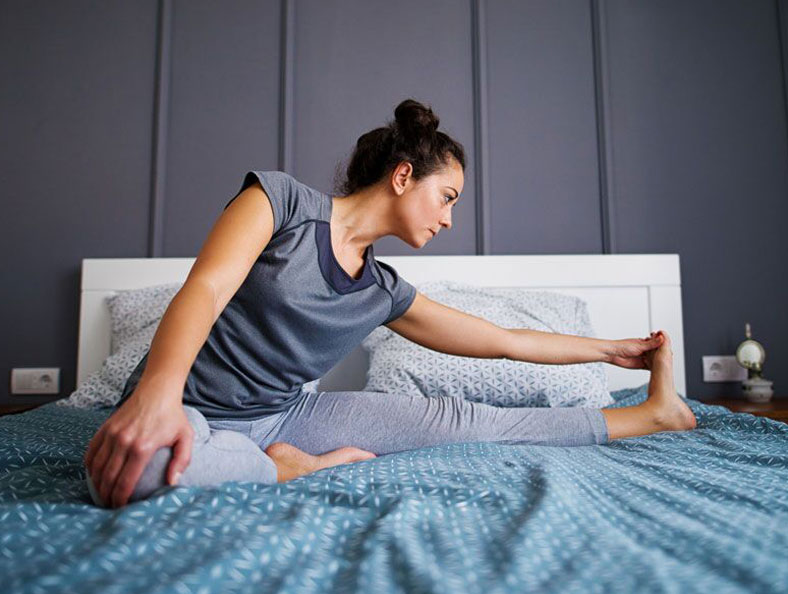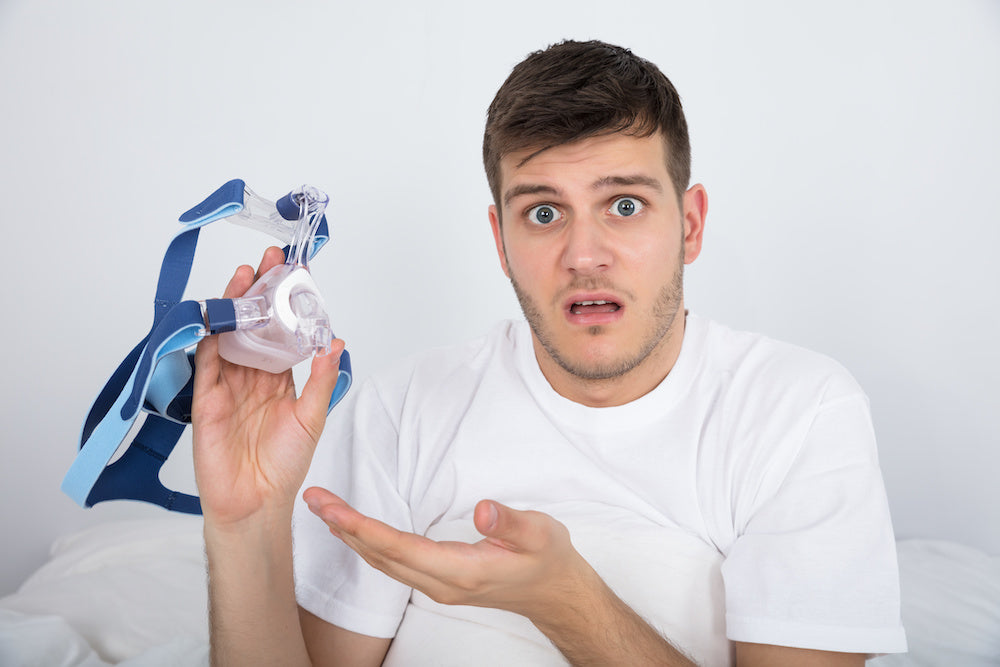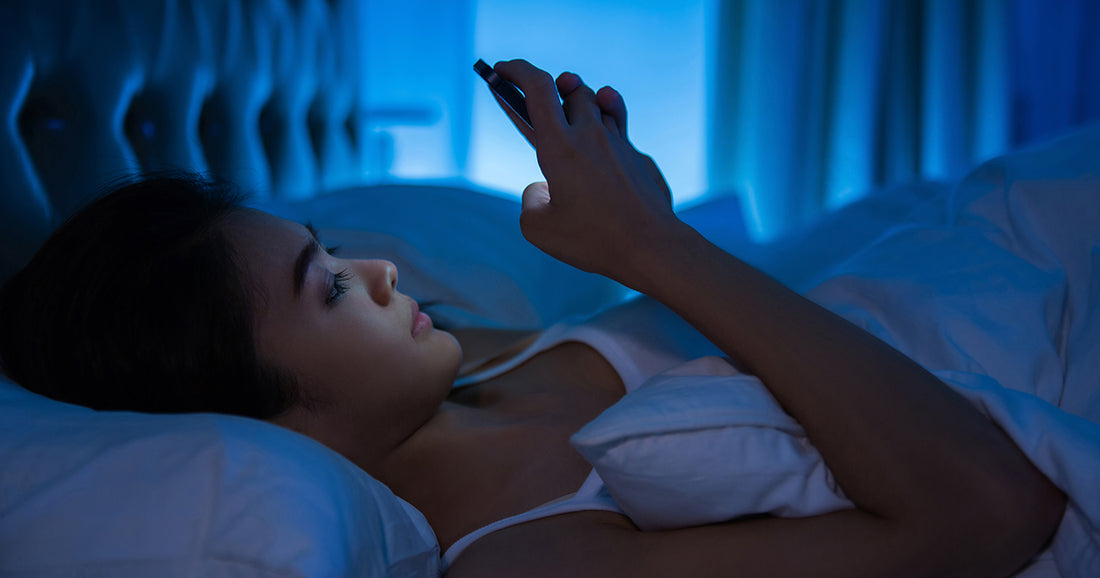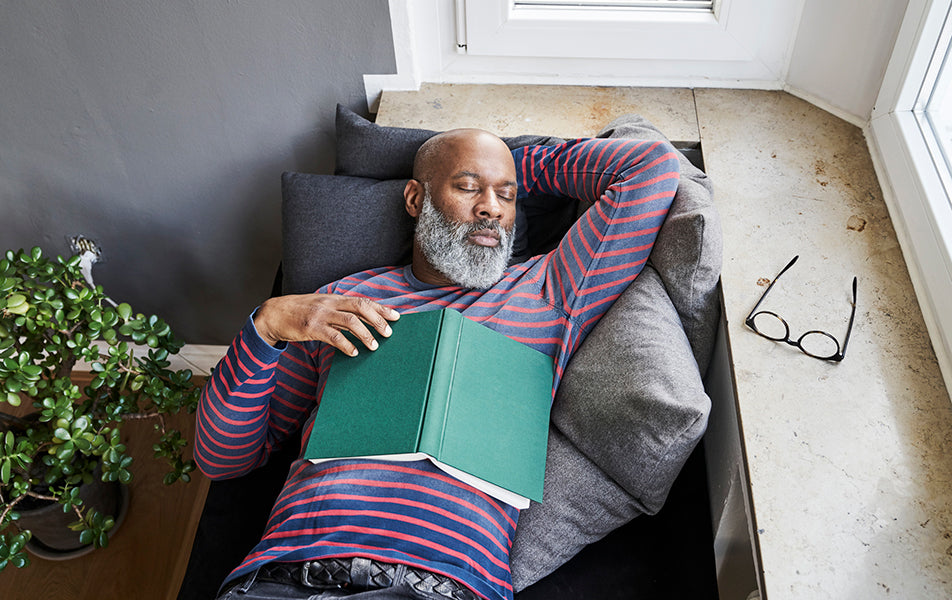News
Six Sleep Tips for Post-Secondary Students
wp:paragraph With the long summer days coming to an end, classes for college and university are just starting for the year and whether you are going back to on-campus learning or your classes are still virtual, it’s time to get your sleep routine in check. /wp:paragraph wp:paragraph It’s no secret that post-secondary students are not exactly known for having the best sleeping habits. Sleep is essential for everyone, but if you are a student in college or university, it is more important than ever to make sure you are well-rested during the daytime so you can concentrate on your studies and have a successful semester. /wp:paragraph wp:paragraph Here are a few tips for post-secondary students to get a good night’s sleep; /wp:paragraph wp:list {"ordered":true,"type":"1"} Keep your sleep schedule as consistent as possible: many class schedules in college and university can vary day to day, meaning you may have to deal with classes in the early mornings and/or late evenings. Try your best to go to bed and wake up at within 1-2 hours (even on weekends!) Practice good sleep hygiene: make sure your sleep environment is cool and dark, take advantage of blackout curtains and earplugs if necessary. Following a relaxing routine right before bed will also be important to help you prepare for a good night’s sleep. Don’t use your bed for anything other than sleeping: as tempting as it may be to take your laptop on the bed to finish that essay, don’t do this! Avoid caffeine before bedtime: a cup of coffee may seem tempting if you are doing homework into the evening hours but this will keep you awake at night. Keep alcohol, nicotine, and cannabis to a minimum: all of that late night partying is not great for your sleep cycle. Limit how much you drink in the evening hours and don’t use nicotine or cannabis too close to bedtime. Keep your naps short: if you absolutely need to nap during the daytime, one hour or less is recommended, that way it doesn’t interfere with your bedtime. /wp:list
about Six Sleep Tips for Post-Secondary StudentsFive Sleep Tips for Shift Workers
wp:paragraph Do you work irregular hours (or overnight shifts) and find yourself struggling to maintain a sleep schedule? You are not alone. There are many people who don’t work the typical 9-5 hours, therefore they do not always sleep at the same time every night. Sleep is essential for you to be at your best, especially at work, so it is important to make the most of the sleep you can get, no matter what time of day it is. /wp:paragraph wp:paragraph While it may seem easier said than done, there are ways to help you sleep better even if you are working an irregular schedule. Here are a few tips to make the most of your sleep if you are a shift worker. /wp:paragraph wp:list {"ordered":true,"type":"1"} Limit Caffeine /wp:list wp:paragraph One cup of coffee is okay at the start of your shift, and maybe a small cup every 1-2 hours, just to keep you awake during your shift but try to avoid caffeine at least 3-4 hours before bedtime. /wp:paragraph wp:list Create the perfect sleeping environment /wp:list wp:paragraph If you need to sleep during the day, keep your bedroom or designated sleeping area as dark as possible (blackout curtains would work best for this) and keep the temperature of the room on the cooler side. /wp:paragraph wp:list Limit Distractions /wp:list wp:paragraph Keep your phone and other devices on silent and ask other members of your household not to disturb you while you are sleeping unless it is an emergency. /wp:paragraph wp:list Follow a routine /wp:list wp:paragraph Make sure you follow the same bedtime routine when going to sleep, even if it is the daytime or your schedule is inconsistent. This will help your body to wind down and prepare for sleep. /wp:paragraph wp:list Set boundaries /wp:list wp:paragraph If at all possible, try to place limits on the amount of overnight shifts you take on, as the irregular schedule can be hard on your body. If this cannot be avoided, this is where having a routine will be extremely important. Speak to your doctor if you are experiencing multiple episodes of insomnia or other sleeping problems. /wp:paragraph
about Five Sleep Tips for Shift WorkersHow the Pandemic May Have Affected Your Sleep
wp:paragraph It’s been almost a year and a half since the Covid-19 pandemic turned the world upside down. In that time, you may have noticed that your sleeping habits may be a lot different these days than they were 18 months ago which is the case for many people, whether they realize this or not. /wp:paragraph wp:paragraph If you find that your sleep habits have changed under the different circumstances, that is fine, as long as you are being smart about it. Here are just a few of the top ways people have changed their sleeping habits to align with the pandemic circumstances. /wp:paragraph wp:paragraph Different Bedtimes /wp:paragraph wp:paragraph You may have found yourself going to bed later than you normally would, and possibly even sleeping in more often. If you are no longer commuting to work and finding yourself at home more often then, this is fine. There is nothing wrong with adjusting your sleep schedule under a change in circumstances, but make sure you are still relatively consistent with the time you go to bed and wake up. /wp:paragraph wp:paragraph Using Sleep Supplements /wp:paragraph wp:paragraph More and more people are relying on over-the-counter sleep supplements, like melatonin, to help them fall asleep. While taking melatonin once in a while is generally okay, it is best not to make this a long-term daily occurrence. It is important to speak to your doctor and get help if you are struggling with falling and staying asleep. /wp:paragraph wp:paragraph Dreams and Nightmares /wp:paragraph wp:paragraph The stress and uncertainty of the pandemic have been causing people to have more vivid dreams and nightmares than they might have had before. Of course, bad dreams happen to everyone now and then, but if this becoming a regular occurrence and negatively affecting your ability to get a good night’s sleep, then it’s time to get help. /wp:paragraph wp:paragraph Increased Screen Time /wp:paragraph wp:paragraph Scrolling your device to find out the latest pandemic news or communicating with loved ones during the lockdowns means more time in front of a screen these days, but don’t overdo it. Too much screen time can negatively affect your sleep habits and overall physical and mental health. It is important to find activities to do that don’t involve screens. /wp:paragraph
about How the Pandemic May Have Affected Your SleepWhat is REM Sleep?
wp:paragraph REM stands for Rapid Eye Movement and it is a vital stage of your sleep cycle. It’s something you may have heard of quite a bit but maybe you don’t really know what it is. /wp:paragraph wp:paragraph What happens during the REM stage? /wp:paragraph wp:paragraph The REM stage of your sleep cycle occurs approximately 90 minutes after you fall asleep and helps to improve your learning, memory and mood. In this stage, your body and brain go through a lot of activity including eye movement in various directions, fast breathing, increased brain activity and low muscle tone. This is also the stage of sleep where you would typically have dreams. /wp:paragraph wp:paragraph Believe it or not, despite all of this activity in your body during this stage, you will be in a very deep sleep when this occurs and likely have no idea that it is happening. This stage makes up approximately 20-25 percent of the body’s entire sleep cycle and it is very important for you to have a good and restful sleep at night and for your body and brain to fully recharge. /wp:paragraph wp:paragraph How does REM sleep affect me? /wp:paragraph wp:paragraph Although it may not be something you think about, there are many ways that the REM phase of your sleep can be disrupted. For instance, many studies completed over the years have shown that consuming too much alcohol, especially close to bedtime, can significantly shorten the REM sleep stage. Additionally, certain medical conditions or medications can contribute to a disrupted REM sleep, although it’s very rare. /wp:paragraph wp:paragraph If for any reason this stage of sleep get disrupted, there are ways to improve your REM sleep which include practicing proper sleep hygiene (including sticking to a consistent bedtime, keeping the bedroom as an inviting sleep environment and sticking to at least 7-9 hours of sleep each night). Avoiding alcohol close to bedtime is also essential. /wp:paragraph wp:paragraph If you are experiencing any sleep issues or a disrupted REM sleep then it is important to speak to your doctor to get proper help. /wp:paragraph
about What is REM Sleep?Relaxation Techniques for Sleeping
wp:paragraph Did you know that stress and anxiety are the cause of many sleep issues? Life happens to all of us and even the best sleepers may go through periods where they have trouble sleeping. The body’s response to stress is not necessarily one that benefits your sleep cycle and can lead to other sleep issues such as insomnia. /wp:paragraph wp:paragraph Luckily there are a few simple techniques that can be implemented to help you relax before bedtime. You don’t need to be a meditation or yoga expert to take advantage of these and you certainly don’t need to do it perfectly the first time. /wp:paragraph wp:paragraph Breathing Exercises /wp:paragraph wp:paragraph Practicing a few slow deep breaths can be very beneficial in helping you to relax. Find a quiet place, close your eyes and breathe in and out slowly for about five minutes. Place a hand on your stomach, just under your lungs, and feel your diaphragm expanding as you breathe. /wp:paragraph wp:paragraph Body Scan & Muscle Relaxation /wp:paragraph wp:paragraph These are both very common meditative practices that can be used by anyone if you wish to let go of any tension in parts of your body. A body scan takes you through all parts of your body from head to toe, guiding you through visualization exercises to relax each part of the body through deep breathing. Progressive muscle relaxation is where you tense up your muscles in a specific group for a few seconds, then release, continuing to breathe slowly and deeply the entire time. This can be a new concept for many people but there are lots of videos on Youtube and apps like Calm and Headspace to help guide you through these exercises. /wp:paragraph wp:paragraph Stretching exercises /wp:paragraph wp:paragraph If parts of your body are feeling tense, it can be a good idea to stretch it out! This can be fantastic if you are feeling the physical effects of stress and anxiety, or if you have done a lot of physical activity and your body may be feeling sore. There are lots of fitness apps and Youtube videos with some good nighttime stretch routines to help you relax. /wp:paragraph wp:paragraph Practicing good sleep habits /wp:paragraph wp:paragraph As always, make sure you are practicing good bedtime habits to make the most out of your sleep. Make yourself a cup of herbal tea, turn off your phone, and read a good book as you are going to sleep to help you get into a state of relaxation. /wp:paragraph
about Relaxation Techniques for SleepingSix Common CPAP Problems and How to Fix Them
wp:paragraph Your CPAP machine can be a fantastic tool for helping with your sleep apnea. But like any other technological device, it is not perfect and can have its common problems and frustrations. It is important to remember that you are not dealing with this alone. Many of these issues are very common amongst CPAP users and can be easily fixed. /wp:paragraph wp:paragraph Check out some common CPAP user problems below, along with tips on how to fix these. /wp:paragraph wp:list {"ordered":true,"type":"1"} The mask makes me feel claustrophobic /wp:list wp:paragraph This is very common, especially for new CPAP users! Try to put the mask on your face during the day for a short period of time to get used to it, or think about switching to a nasal mask instead, if using a full face mask. /wp:paragraph wp:list The forced air pressure makes me feel uncomfortable /wp:list wp:paragraph This can certainly feel overwhelming for many people. If you are new to using a CPAP machine, start with a lower air setting if possible. You can also look into machines that automatically adjust the air pressure as you sleep. /wp:paragraph wp:list The machine is too noisy /wp:list wp:paragraph Luckily, most newer models of CPAP machines are silent, but make sure the air filters and tubing are all clean and unblocked as this can create unnecessary noise. Earplugs and white noise machines can help too if the noise is still bothersome. /wp:paragraph wp:list My nose feels very dry and stuffy /wp:list wp:paragraph A heated humidifier should help with this but make sure the mask is properly sealed on your face and there are no leaks. You can also try using a nasal saline spray before bedtime to help with this. /wp:paragraph wp:list My mouth is dry /wp:list wp:paragraph This is a very common problem for patients who breathe through their mouths. A humidifier should help with this or try using a chin strap to reduce any air leakage. /wp:paragraph wp:list My skin feels irritated /wp:list wp:paragraph If you are developing any skin irritation or sores, your mask may not be fitting properly, or it’s worn out and needs to be replaced. Try adjusting the straps and padding for a better fit and be sure to keep your mask clean regularly. /wp:paragraph wp:paragraph If you are still having issues that cannot be resolved on your own, speak to your doctor for advice. Be sure to check out www.papsmart.com for lots of choices for masks and other parts for your CPAP machine. /wp:paragraph
about Six Common CPAP Problems and How to Fix ThemThe Effects of Technology on your Sleep
wp:paragraph Ever fallen asleep while texting or checking social media on your phone? Or maybe you are notorious for checking your email well into the night. Given how addictive our phones and other electronic can be, this is certainly something that has happened to many of us, it’s just too easy! /wp:paragraph wp:paragraph As tempting as it may be, this type of activity is very strongly discouraged by many sleep experts for many reasons. /wp:paragraph wp:paragraph Why can’t I seem to put the phone away at bedtime? /wp:paragraph wp:paragraph That bright light on many smartphones and tablets (also known as a blue light) on most devices can be known to increase your alertness and overstimulate you, making it very difficult to fall asleep. Blue light can also block the release of a sleep hormone called melatonin, which is what signals your brain that it’s time to go to sleep. /wp:paragraph wp:paragraph Also, ever go down the “rabbit hole” of playing on your phone? Yes, many people are likely to become too wrapped up in whatever they are doing with their devices, whether it be playing a game, watching a video, answering work emails or simply scrolling on social media, keeping them up way past their bedtime. /wp:paragraph wp:paragraph How to break the scrolling habit /wp:paragraph wp:paragraph It is generally recommended that any use of electronic devices is stopped at least 2 hours before bedtime. However, in a world where we are so reliant on technology for many aspects of our lives, this may not always be possible. Here are a few other tips to not let technology affect your sleep. /wp:paragraph wp:list Try putting your phone or tablet in another room overnight, thus resisting the temptation to pick it up. If you absolutely need your phone with you in the same room, turn it to silent before going to sleep, to avoid any incoming notifications waking you up (even the vibrate mode can be very loud and distracting). Try getting into the habit of reading before bedtime. Even using an e-reader is fine as they typically do not emit the blue light that can negatively affect your sleep. If you have a TV in your room, be mindful of how much “binge watching” you do before bedtime and don’t fall asleep with the TV on. /wp:list
about The Effects of Technology on your SleepThe Pros and Cons of Taking a Nap
wp:paragraph Are you unsure if taking a nap in the middle of the day is good for you? /wp:paragraph wp:paragraph The Answer? It really depends. There are many instances where napping can provide a lot of benefits. However, a nap during the day may not necessarily be beneficial for everyone. /wp:paragraph wp:paragraph The pros of napping /wp:paragraph wp:paragraph There can be many benefits to a nap, including reduced fatigue, increased alertness, and improved mood. If you experience any sort of sleep loss, such as a late night or a bad night’s sleep, a short nap can help you to feel back on track with your regular sleep cycle. Also, many shift workers who work during the nighttime hours often take advantage of naps during the daytime, that way they are more alert and can perform better at work. /wp:paragraph wp:paragraph The cons of napping /wp:paragraph wp:paragraph Not everyone will feel the benefits of a nap. Trying to sleep in the daytime can be challenging for some people and you may actually find that naps are counterproductive. You may feel even more tired and groggy than before and may have trouble falling asleep once bedtime comes around. Also, naps may be a challenge if you are away from your own sleeping environment for any reason, such as travel. /wp:paragraph wp:paragraph Four tips for getting the most out of your nap /wp:paragraph wp:list {"ordered":true,"type":"1"} Keep your naps short: even an hour or less can be beneficial. Don’t hesitate to set an alarm if you need to. Take your naps earlier in the day: early afternoon is usually the best time. Taking a nap too late in the day can mess with your internal clock. Practice relaxation exercises: try to take this time to let go of any daily stresses you may have in order to get the most out of your nap. Create a suitable environment for napping: take your nap in a quiet and dark place with few distractions. /wp:list
about The Pros and Cons of Taking a NapCamping this Summer? Tips for Getting Good Sleep in a Tent
wp:paragraph {"fontSize":"normal"} Camping has become more and more popular over the past few years, but especially in the past year thanks to pandemic travel restrictions. It’s easier than ever to truly get away and unplug without venturing too far from home. /wp:paragraph wp:paragraph {"fontSize":"normal"} However, with tent camping comes the uncomfortable nights of sleeping on the ground and trying to fall asleep with the noises of nature all around you. Some find it soothing while others may find this irritating. /wp:paragraph wp:paragraph {"fontSize":"normal"} Here are a few ways to make sure you are still getting a good night’s sleep, even under the stars. /wp:paragraph wp:paragraph {"fontSize":"normal"} Create the perfect sleep environment /wp:paragraph wp:paragraph {"fontSize":"normal"} First, you will want to invest in some good quality sleeping gear, including a comfortable sleeping bag (with a good temperature rating for those cold nights) and a mat or cot to go underneath you since it’s no fun sleeping on the ground. Also, make sure your tent is dry and free of holes or rips, so the bugs don’t get in. You may consider adding a tarp above in case of rain. Finally, be sure to place your tent in an area that is flat, even, and free of large rocks and other debris. /wp:paragraph wp:paragraph {"fontSize":"normal"} Healthy Diet and Exercise /wp:paragraph wp:paragraph {"fontSize":"normal"} Stay active during the daytime so that you are tired at night. Don’t just sit by the campfire all day! Take advantage of available hikes and trails around you and other activities such as swimming, canoeing, kayaking, and more. Stick as close to your normal diet as possible and stay hydrated. Of course, you are likely to indulge while camping but don’t overdo it with the smores too close to bedtime. And make sure you are drinking a lot of water since you are outdoors all day. /wp:paragraph wp:paragraph {"fontSize":"normal"} Sleep Hygiene /wp:paragraph wp:paragraph {"fontSize":"normal"} Just because you are on vacation doesn’t mean you need to forgo proper sleeping habits. Try to follow your regular bedtime routine as much as possible. It may not be the same as home but the simple act of brushing your teeth and going to bed at the same time will help you to sleep better. Bring an eye mask if you are sensitive to light and bring earplugs if the nature noises bother you. A portable white noise machine may help too, but make sure it is not so loud that it disturbs other campers. /wp:paragraph wp:paragraph /wp:paragraph
about Camping this Summer? Tips for Getting Good Sleep in a Tent